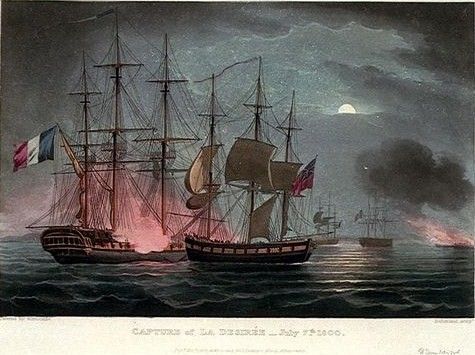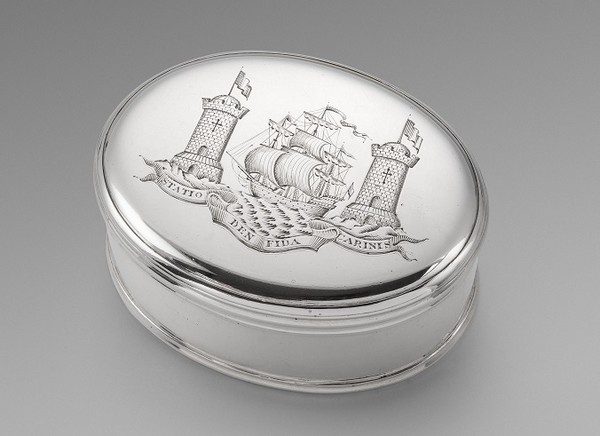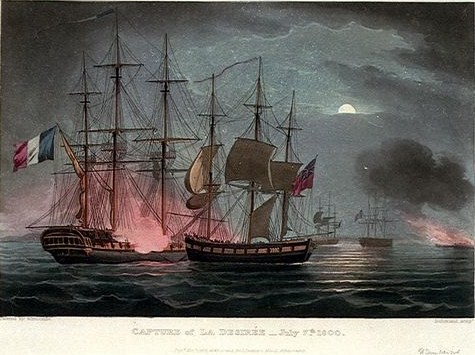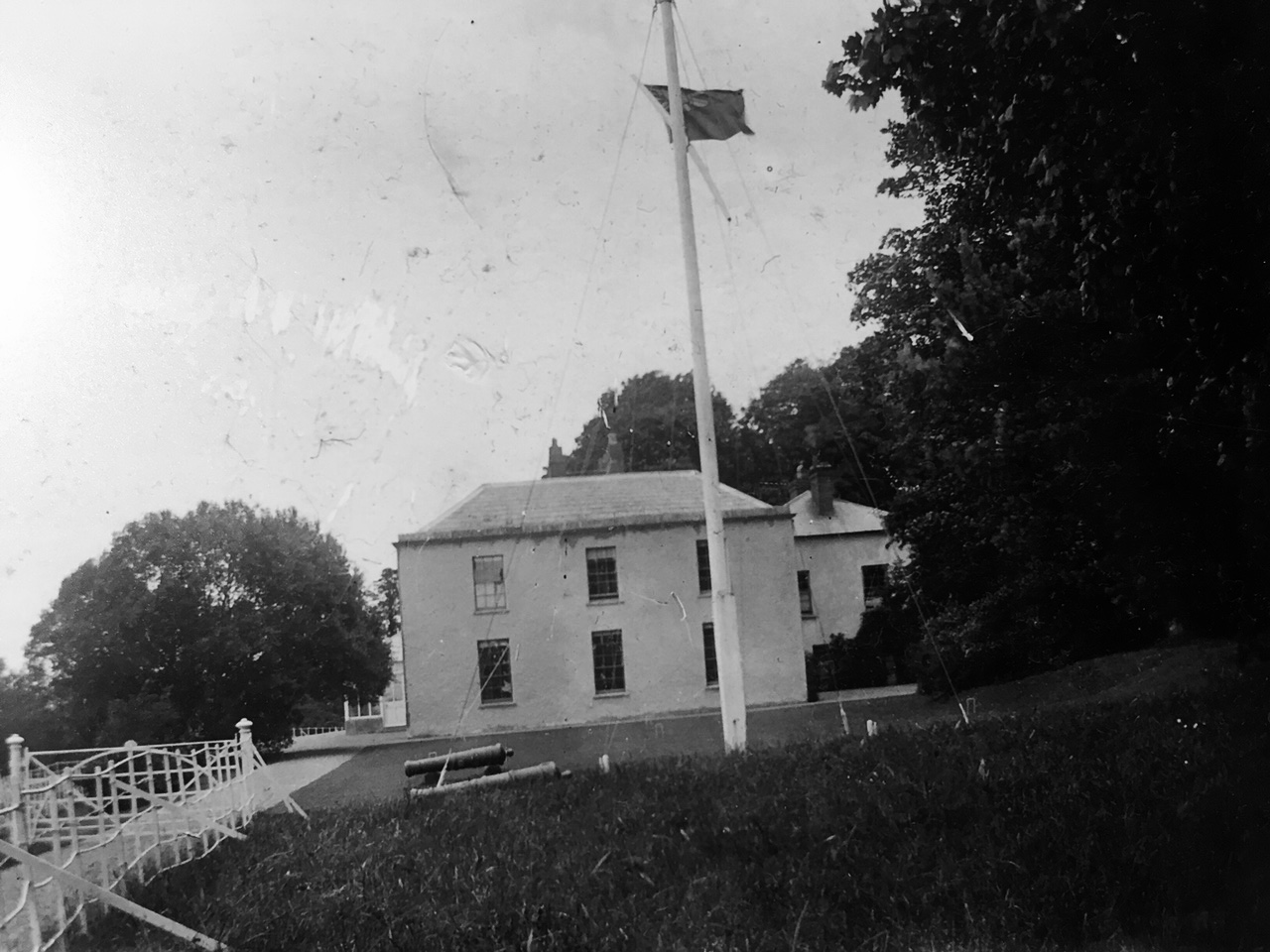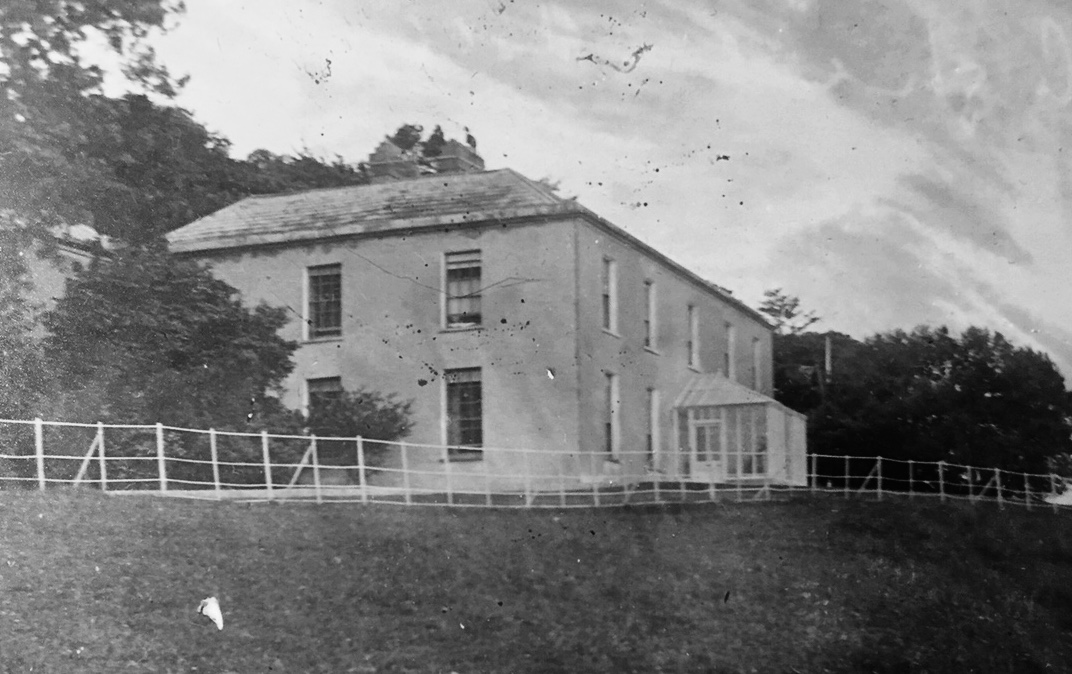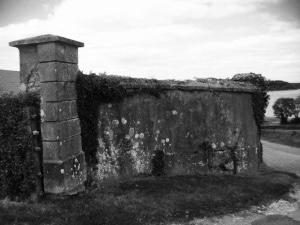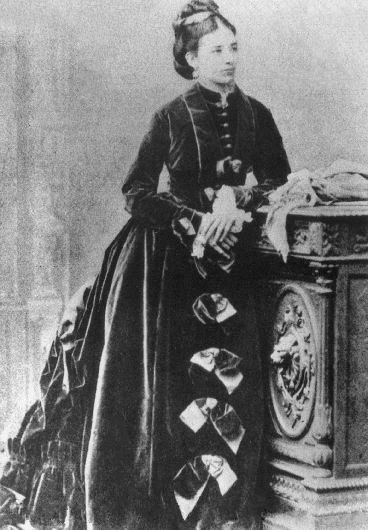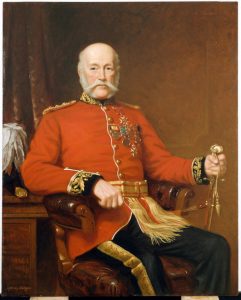The Pauline Roche story seems to have been very popular. This is a transcript of the very lengthy letter that John Roche O’Bryen wrote to his local paper “The Bristol Mercury and Western Counties Advertiser” on the 29th December 1855, giving his side of the story.
It is quite clearly carefully planned, and done with the support of the editor of the Bristol Mercury. The italics for inference are printed in the paper, so it is definitely planned with some care, and not just a letter to the editor.
It’s also a classic example of bad PR probably making things worse. In a taster of things to come, JROB starts his letter with the Latin tag “Audi alterum partem” best translated as “let the other side be heard as well”, and finishes with “Fiat Justitia, ruat caelum” – “Let justice be done though the heavens fall”. This was most famously used by Lord Mansfield in 1772 in the first major English case on the legality of slavery. He was against.
So pompous, self-serving, and an astonishing attack in print on a teenager from a forty five year old doctor. Quite why he chose to go public when he did is not entirely clear, but it seems to be provoked by a decision by “the Court of the Corporation of the Poor” [they ran the Bristol workhouse]. I assume they had made the decision to remove JR as one of the guardians, but as yet I have no evidence to support that.
To be fair to JR, the Master of the Rolls who heard the case was Sir Thomas Berry Cusack-Smith (1795–1866), who does appear to be faintly bonkers. He was the Attorney-General who prosecuted Daniel O’Connell in 1844 on charges of conspiracy, sedition, and unlawful assembly. During the course of that trial he challenged one of the opposing counsel, Gerald Fitzgibbon, to a duel.
This is JR’s letter in full:
THE BRISTOL MERCURY, AND WESTERN COUNTIES ADVERTISER, SATURDAY DECEMBER 29 1855
DR. O’BRYEN AND THE CORPORATION OF THE POOR
Audi alterum partem,
To the Editor of The Bristol Mercury
SIR – I need make no apology for asking your indulgence to enable me to defend myself by bringing before the public such explanation as I can offer of certain expressions that fell from the Irish Master of the Rolls when called on to settle a mere matter of costs. What purported to be his language appeared in your paper of the 22nd of June last. The course the Court of the Corporation of the Poor have thought proper to adopt, at their meeting of the 11th instant, obliges me, most reluctantly, to re-open a matter I had rather forgotten, not that I feel at all conscious of having done wrong, for, were it so, I would not now ask a hearing. The manifestly partial and one-sided import of the words used by the Master of the Rolls, it was considered, would be their own antidote, for all who knew me in private life were aware how unfounded such “surmises” and “inferences” as he thought it not beneath him to indulge in, were in fact. For this, amongst several other valid reasons, not adverse to myself, which I cannot publish, my friends advised me to let the matter rest, and I now regret that I permitted myself to be prevailed on to leave the matter to public opinion, which, it was alleged, would not fail to discern the ex parte nature of his language, and judge accordingly, instead of at once showing (at all risks) how entirely at variance it was with the judgement of the Master in Chancery, to which no exceptions were taken.
Before entering into the merits of this case, or making any justifications of my conduct, three points of special difficulty must be borne in mind: –
1st – By the manner of proceeding in the court of Chancery, charges to any amount, in number and gravity, may be made at pleasure, without regard to their truth or application, and I was called on to prove a negative, and that extending over a period of 18 years, not even illustrated by dates, to a long list of charges so got up.
2nd – I laboured under the great and irremediable disadvantage of the absence of the most important, I might almost say the only, witness capable of directly answering who had lived with me for eight years: she had left and gone on the Continent, to a situation, some time previously. The rules of the Court require all testimony to be sworn before a Master Extraordinary of that Court. None such being on the Continent, I was deprived of her evidence; my children at home were very young, the others were on the Continent at school, under age, and therefore inadmissible. Hence, to prove the negative, I was compelled to rely on my own and my wife’s evidence, that of any servant I could find who had lived with us during that period, and the very few visitors and friends who knew our private household life sufficiently well (and all know how few such can exist) to be able to speak to the untruth of one or more of these charges.
3rd – I have now, in addition, to contend with the “surmises” and “inferences” which the Irish Master of the Rolls thought proper to indulge in when called on to settle a mere matter of costs.
The Minor, Miss Roche, made certain complaints to the Lord Chancellor Brady, who directed that the Master in Chancery, J.J.Murphy, esq., should proceed to examine into and report upon them to him, which was done, and the report presented to his Lordship, when he directed the Master of the Rolls to settle the costs.
Every impartial reader of the reported language of the Master of the Rolls must be struck with one fact, that, to use a mild expression, he allowed the gravity of the judge to disappear in the one-sided earnestness of the advocate. It is manifest his language did not meet the justice of the case, and for this view I rely on the finding and judgement of the Master in Chancery, the officer to whom the complaints were referred, and before whom all the witnesses were brought, and the evidence was investigated, and within whose province it came to decide on the validity and effect of the allegations against me; and notwithstanding all the difficulties I had to encounter in rebutting these charges, and the almost impossibility of finding evidence, yet I refer the reader with confidence to his verdict.
“In the matter of J.P.Roche, a Minor, – Hy. Thos Keane, plaintiff, Hugh Roche and others, defendants; Hy. Thos Keane, plaintiff, Elizabeth Roche defendant; Hy. Thos Keane, plaintiff, Peter Cook and others, defendants.”
“ To the Right Honourable Maziere Brady, Lord High Chancellor of Ireland. May it please your Lordship, pursuant to your Lordship’s order made into this matter, and in these tatises bearing date 2nd day of November 1854, whereby it was referred to me to inquire and report whether the treatment of the said Minor had been proper and according to the direction of this court; and for the purpose of ascertaining and determining upon the guardian’s treatment of the said Minor, I directed that a specification should be prepared, setting forth in writing the charges or causes of complaint alleged by her, or on her behalf, against the said John Roche O’Bryen: the same were accordingly specified and marked with my initials.”
The charges laid before the Master in Chancery for investigation, were as follows:-
FIRST GENERAL CHARGE
“ That said john Roche O’Bryen treated said Minor in a harsh and cruel manner, unsuited to her age and constitutional delicacy.” Viz:-
- “By striking her with a riding whip, and on other occasions making use of personal violence to her, and generally treating her with cruelty and harshness.”
- “ In having compelled her, or induced her by false statements as to her position in his family, to undertake and perform menial services, such as washing and dressing the younger children of said J.R.O’Bryen, acting as nursery governess, sweeping rooms, and like offices.”
- “In having compelled, or induced said Minor to dine in the kitchen or servants hall, in company with the female servants and younger children of said J.R.O’Bryen.
SECOND GENERAL CHARGE
“That said John Roche O’Bryen treated said Minor in a manner unsuited to her age and constitutional delicacy, and prospects in life, and not in accordance with the allowance made for her maintenance in that behalf by the reports on orders in said matter, viz:-“
- “In supplying her with clothes unsuited to her age and prospects in life.”
- “In supplying her with food unsuited to her station in life and natural delicacy of constitution.”
- “In not allowing said Minor pocket money suited in its amount to her age and prospects in life.”
- “In not providing said Minor with horse exercise, in accordance with the report bearing date 28th May, 1850.”
- “In having caused the acquaintances and teachers to believe that said Minor was a dependant on the charity of said John R. O’Bryen, and to act towards her accordingly.”
- “That said John Roche O’Bryen concealed from Minor her true position in his family, and made false statements to her respecting her prospects and the true position of her affairs.”
J.J.M.
The evidence on both sides having been entered into in respect to these charges, Master Murphy gave the following judgement to which no exceptions having been taken, it was formally embodied in his report to the Lord Chancellor, and to this I now refer, as my reply to the following charges.
“The 1st is sustained so far as to striking her with a riding-whip, and on another occasion (see evidence) striking her with his hand – no other proof of actual violence. It further appears the Minor at an earlier period (see evidence) felt such apprehension that she left her guardian’s house. &c. The striking I consider wholly unjustifiable, and I have no further evidence of cruelty. As to harshness, I think Dr O’Bryen’s manner may have laid a foundation to that charge. He appears to me to entertain very high notions of the prerogatives of a guardian as well as a parent, but I have no sufficient or satisfactory evidence of any general or deliberate harsh treatment on his part.”
“I have not evidence that satisfies me that Dr O’Bryen made use of false statements as to the Minor’s position in his family. The Minor may have undertaken and performed what are termed menial offices, which she now complains of, but in my opinion she never was induced or compelled to do so by Dr O’Bryen. I think she was, to an advanced period of her life, left too much in communication with servants, governesses, and younger children having regard to her prospects in life and her constitutional and moral tendencies and her due self-respect. This coarse, I think, latterly made her reckless and indifferent, and indisposed to avail herself of the opportunities which may then have been afforded her of associating with Dr and Mrs O’Bryen.”
“Upon the evidence before me I consider this a misrepresentation. I do not see any reason to believe that she ever dined in the kitchen – servants’ hall there was not in the house. If she ever dined in the kitchen, or in company with the servants, she did so, in my judgement, without any inducement or compulsion on the part of Dr O’Bryen.”
“The second I have already partially answered (see above).”
“I consider it due to Dr O’Bryen to state that whatever fault of judgement or manner he may be chargeable with in the moral treatment of the minor, he appears to have had her well educated according to her position and capacity, and to have bestowed on her medical treatment very commendable attention and skill, and that he also gave her full opportunities of taking horse exercise if she pleased; also latterly, opportunities, so far as she appears to have desired, of associating with his respectable acquaintances; and, with the exception of the article of clothing (about which I doubt), and the defects of moral treatment above referred to, I can discover no well-founded reason to complain of his conduct as a guardian.”
“The specific complaints under this band are:-
- “In the article of clothes, but for the evidence of Mr Stephen O’Bryen, having made a complaint to Mr Sweeny on this (unclear) as appears in the evidence of the latter, I should have found against the charge; after that evidence I am inclined to think there was some ground for the Minor’s complaint on this bead.”
- “As to the supply of food, it was not exactly what I could have wished in some respects; but it was always the same as that given to Dr O’Bryen’s own children; and it further appears that the Minor was allowed to keep the keys, and could have taken what she wished. I consider the cause of this complaint was much exaggerated.”
- “It does not appear that Minor ever asked or expressed a wish to get pocket-money. It also appears that she had actually given some money to Dr O’Bryen to keep for her.”
- “As to not providing Minor with horse exercise, I consider this charge colourable, and without any real foundation or just cause of complaint.”
- “The evidence on this point is conflicting: there is a good deal of it on the part of the Minor, but the charge has not been established to my satisfaction.”
- “This I have already answered as to the Minor’s position in his family. As to her prospects, and the true position of her affairs, Dr O’Bryen has himself stated that he did think it not prudent to disclose in this respect, with his reasons he may have withheld. I cannot satisfactorily arrive at the conclusion that he made any false statements in this regard. I must, however, state my belief that the minor was not, for a considerable time past by any means so ignorant of the state of her property and the condition of her affairs as has been represented on her part. And, upon the whole, I find that she has been maintained and educated in a manner which entitles him to be paid the allowance payable for said minor.”
J.J.MURPHY
The above official document fairly disposes, after a thorough investigation, of a long list of specified charges; but there remain a few new ones, brought forward for the first time by the master of the Rolls, and I will now proceed to deal with them.
It appears in evidence that the minor went daily to the house of a governess for a fixed time, and that this person thought proper, during this time to give her a few lessons on the harp, which she alleges she did without charge as she considered the Minor an orphan and dependant. This was done without the knowledge or consent of her guardian. The Master of the rolls found on this “an inference” and a grave charge. He says- “It appears to me that if she did receive a proper education, it was that of a poor relation, and my inference is, that the money was spent on the education of the cousins of Minor, and that the governess, from motives of benevolence, gave this young lady, whom she supposed a dependant, instructions with her pupils.” No charge of this nature was ever made by my opponents: but on the contrary, it was admitted that Minor had received as good an education as she was capable of; a view confirmed by the report of the Master as follows:- “ I deem it right to state, in justice to the said guardian, that he appears to me to have displayed very commendable attention and skill in the medical treatment of said Minor, and to have had her duly and properly educated, and upon the whole that she has been maintained and educated by him in a manner which entitles him to be paid the allowance payable for the said Minor.”
Again the Master of the Rolls indulges in inferences. He is represented to have said-“Now, if the Minor deserved punishment for a falsehood, what punishment would be sufficiently ample for the man who told his niece such a falsehood as that her father died in debt and left her nothing.” The facts of the case show the Master of the Rolls to have been ill-informed, and to have made a grave charge which he ought to have known was untrue in fact. The facts are these:- The father of Minor made his will in 1832 and died in 1835, when Minor was three months old. He left all his real and personal property to his brothers absolutely, save an annuity to his widow, and made no provision for any child or children. Master Goold’s report of 1836, when minor was made a ward, makes it appear that only £1374 remained in Irish funds out of £ 10,000 to which Minor was entitled under the will of her maternal great-grandfather, to whom her father was executor. Her father admits in his will that he drew and spent the money, and accordingly bills were filed against his brothers to recover deficiency. All the property was sold, and did not realise anything like the debt. Hence it was perfectly true to tell Minor that her father had left her nothing and died in debt.
That the letter of May 4th, 1854, written by Minor, was a part of a conspiracy, must appear to everyone, when I state that it was proved by several witnesses that the Minor knew she had property of her own, and was not dependant. Sympson, the man-servant who accompanied her when she rode out states in his evidence, “ Minor frequently told him when out riding with her, and he particularly recollects one occasion in the summer of 1851, and he heard her tell the other servants of the house the same thing, that she had property of her own, and that Dr O’Bryen was allowed for her maintenance, and also the keep of a pony for her use;” and the master has found, “I must, however, state my belief that the Minor was not, for a considerable time past, by any means so ignorant of the state of her property and the condition of her affairs as has been represented on her part.” So much for her alleged ignorance up to August 1855 which I am deeply grieved to say she has sworn to. In regard to the letter which this Minor has declared she wrote to Mr Orpen, at the dictation of Mrs O’Bryen, I will only say that Mrs O’Bryen has twice sworn that she only, as was her custom, connected the Minor’s ideas, and faithfully expressed her wishes at the same time without suggestion of her own, and I will add, we both now believe that she thus acted to deceive and put Mrs O’Bryen off her guard. The Minor took care to send to her solicitor the pencil sketch, which at least, demonstrates deep cunning. Again, this unfortunate child has sworn that on October 3rd 1854, when Mr Orpen called to see her, she was engaged sweeping out the school-room, and doing other menial work, while two persons clearly prove on oath that she was dressing to go out to pay a visit and not engaged as stated by her, and one of these witnesses was the servant, who was actually at the moment employed in these duties, who swore, “ saith that Minor hath not been, and was not employed in sweeping out the school-room, or making up her own room at the time of said Mr Orpen’s visit; inasmuch as this deponent was in the act of making said minor’s bed, dusting her room &c.2 Whilst said Minor was dressing to go out, saith “that whilst in said house Minor never swept out school-room, never made up her own room, or did any other menial service.” After this, what reliance can be placed on this Minor’s statement?
I will say one word as to dress. This minor so wilfully neglectful of her dress and personal appearance, that for several months Mrs O’Bryen declined to speak to her on the subject for when she did so she received an insolent reply. Hence I was myself obliged, if in the house, to inspect her daily before she went out and when she came down in the morning, and it rarely happened that I had not to send her to her room to change or arrange her dress, brush her hair, and often even to wash her face and neck. For a reason then unknown and unsuspected by us, but which has since transpired (viz:- her intention to found a charge and give it the appearance of truth), she would persist in only wearing old and worn-out dresses that I had several times made her lay aside, and directed to be thrown into the old clothes bag. In fact I had to threaten to search her room and burn them before I could succeed. She put on one of the worst of them outside the day she left my house. I often met her in the street, and had to send her back to change her dress, &c., and notwithstanding all this trouble, my wishes were evaded or neglected the moment my back was turned. The amount of vexation and annoyance this child gave us by her habits and general conduct cannot easily be described. Not a single article of dress was bought for her after Mr Orpen’s visit, and yet an excellent wardrobe was found in her room the day she left. The list is too long to add.
There is only one point on which the Master finds against me, viz. striking: on this subject I am unwilling to give details. It is quite true that in a moment of hastiness on two occasions (in 18 years) caused by extremely bad general conduct on the part of Minor, remonstrance having failed, which at these times was brought to a point, and I did strike her once each time as she was leaving the room, and of this, which in reality is nothing, much has been made by those who wanted to make costs, certain to be paid by either party.
My counsel in Ireland recommended an appeal, but my law adviser in this country said “What are you to gain? All material charges have been disproved; the master’s report is in your favour; no costs have been thrown on you; the allowance has been paid; would it be worth your trouble to appeal only to get rid of the language used by the Master of the Rolls? For this is all you could expect, while the expense of an appeal would prove considerable, and the trouble not a little.”
I will only add, in conclusion, that I hold certain instructions in Minor’s handwriting that she received from a gipsy, proving on the face of it that she was employed to act on this child’s mind.
I now submit the case, which I have shadowed(?) out in this letter, not so much in the hope of appeasing the unthinking anger of incompetent and prejudiced persons, as in the certainty of finding justice at the hands of all those who may have taken a very natural and justifiable interest in the allegations made against me, and are yet open to conviction, and are willing to give its just weight to a true and honest statement of facts.
It is a most painful position to be placed in, after many years spent in gratuitous and honourable professional service, to be summoned before a tribunal which has no power to acquit or condemn, but can only cast a stigma. But no man of earnest(?) and conscious rectitude chooses to withhold a defence beyond a certain limit, however strong his private reasons may be for so doing. That limit has now been reached in the opinion of friends and in my own, and I take with the utmost confidence the on course which appears left open to me.
“Fiat Justitia, ruat caelum
Yours, &c, Mr Editor,
JOHN O’BRYEN, M.D.
